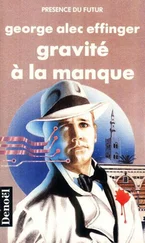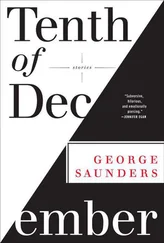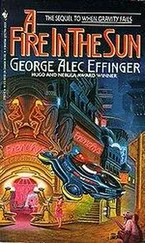“No.”
“Indeed, as thou sayest, he hath never offered thee harm?”
“No. I do not know him. I have never spoken with him.”
“Yet,” said the qadi, clearly unhappy, “you murdered him because of what you have seen? As in a dream?”
“As in a dream, O Respected One, but more truly as in a vision.”
“A dream,” muttered the imam. “The Prophet, may blessings be on his name and peace, didst offer no absolution for murder provoked only by dreams.”
A woman in the crowd cried out, “But she is only twelve years old!”
The imam turned and pushed his way through the rabble.
“Sergeant,” said the qadi, “this young girl is now in your custody. The Straight Path makes our duty clear.”
The police officer nodded and stepped forward. He bound the young girl’s wrists and pushed her forward through the alley. The crowd of fellahin parted to make way for them. The sergeant led Jehan to a small, dank cell until she might have a hearing. A panel of religious elders would judge her according to Shari’a, the contemporary code of laws derived from the ancient and noble Qur’ân.
Jehan did not suffer in her noxious cell. A lifetime in the Budayeen had made her familiar with deprivation. She waited patiently for whatever outcome Allah intended.
She did not wait long. She was given another brief hearing, during which the council asked her many of the same questions the imam had asked. She answered them all without hesitation. Her judges were saddened but compelled to render their verdict. They gave her an opportunity to change her statement, but she refused. At last the senior member of the panel stood to face her. “O young one,” he said in the most reluctant of voices, “The Prophet, blessings be on his name and peace, said, ‘Whoso slayeth a believer, his reward is Hell forever.’ And elsewhere, ‘Who killeth a human being for other than manslaughter or corruption in the earth, it shall be as if he killed all mankind.’ Therefore, if he whom you slew had purposed corruption upon you, your act would have been justified. Yet you deny this. You rely on your dreams, your visions. Such insubstantial defense cannot persuade this council otherwise than that you are guilty. You must pay the penalty even as it is written. It shall be exacted tomorrow morning just before sunrise.”
Jehan’s expression did not change. She said nothing. Of her many visions, she had witnessed this particular scene before also. Sometimes, as now, she was condemned; sometimes she was freed. That evening she ate a good meal, a better meal than most she had taken before in her life of poverty. She slept the night, and she was ready when the civil and religious officials came for her in the morning. An imam of great repute spoke to her at length, but Jehan did not listen carefully. The remaining acts and motions of her life seemed mechanically ordered, and she did not pay great heed to them. She followed where she was led, she responded dully when pressed for a reply, and she climbed the platform set up in the courtyard of the great Shimaal Mosque.
“Dost thou feel regret?” asked the imam, laying a gentle hand on her shoulder.
Jehan was made to kneel with her head on the block. She shrugged. “No,” she said.
“Dost thou feel anger, O my daughter?”
“No.”
“Then mayest Allah in His mercy grant thee peace.” The imam stepped away. Jehan had no view of the headsman, but she heard the collective sigh of the onlookers as the great axe lifted high in the first faint rays of dawn, and then the blade fell.
Jehan shuddered in the alley. Watching her death always made her exceptionally uneasy. The hour wasn’t much later; the fifth and final call to prayer had sounded not long before, and now it was night. The celebration continued around her more intensely than before. That her intended deed might end on the headsman’s block did not deter her. She grasped the knife tightly, wishing that time would pass more swiftly, and she thought of other things.
By the end of May 1925, they were settled in a hotel on the tiny island of Helgoland some fifty miles from the German coast. Jehan relaxed in a comfortably furnished room. The landlady made her husband put Heisenberg and Jehan’s luggage in the best and most expensive room. Heisenberg had every hope of ridding himself of his allergic afflictions. He also intended to make some sense of the opaque melding of theories and counter-theories put forward by his colleagues back in Gottingen. Meanwhile, the landlady gave Jehan a grim and glowering look at their every meeting but said nothing. The Herr Doktor himself was too preoccupied to care for anything as trivial as propriety, morals, the reputation of this Helgoland retreat, or Jehan’s peace of mind. If anyone raised eyebrows over the arrangement, Heisenberg certainly was blithely unaware; he walked around as if he were insensible to everything but the pollen count and the occasional sheer cliffs over which he sometimes came close to tumbling.
Jehan was mindful of the old woman’s disapproval. Jehan, however, had lived a full, harsh life in her twenty-six years, and a raised eyebrow rated very low on her list of things to be concerned about. She had seen too many people abandoned to starvation, too many people dispossessed and reduced to beggary, too many outsiders slain in the name of Allah, too many maimed or beheaded through the convoluted workings of Islamic justice. All these years Jehan had kept her father’s bloodied dagger, packed now somewhere beneath her Shetland wool sweaters, and still as deadly as ever.
Heisenberg’s health improved on the island, and there was a beautiful view of the sea from their room. His mood brightened quickly. One morning, while walking along the shoreline with him, Jehan read a passage from the glorious Qur’ân. “This surah is called The Earthquake,’ “she said. “‘In the name of Allah, the Beneficent, the Merciful. When Earth is shaken with her final earthquake, and Earth yields up her burdens and man saith: What aileth her? That day she will relate her chronicles, because thy Lord inspireth her. That day mankind will issue forth in separate groups to be shown their deeds. And whoso doeth good an atom’s weight will see it then. And whoso doeth ill an atom’s weight will see it then.’ “
And Jehan wept, knowing that however much good she might do, it could never outweigh the wrongs she had already performed.
But Heisenberg only stared out over the gray, tumbling waves of the ocean. He did not listen closely to the sacred verses, yet a few of Jehan’s words struck him. ‘“And whoso doeth good an atom’s weight will see it then,’” he said, emphasizing the single word. There was a small, hesitant smile quivering at the corners of his mouth. Jehan put her arm around him to comfort him because he seemed chilled, and she led him back to the hotel. The weather had turned colder and the air was misty with sea spray; together they listened to the cries of the herring gulls as the birds dived for fish or hovered screeching over the strip of beach. Jehan thought of what she’d read, of the end of the world. Heisenberg thought only of its beginning, and its still closely guarded secrets.
They liked their daily, peaceful walk about the island. Now, more than ever before, Jehan carried with her a copy of the Qur’ân, and she often read short verses to him. So different from the biblical literature he’d heard all his life, Heisenberg let the Islamic scriptures pass without comment. Yet it seemed to him that certain specific images offered their meanings to him alone.
Jehan saw at last that he was feeling well. Heisenberg took up again full time the tangled knot that was the current state of quantum physics. It was both his vocation and his means of relaxation. He told Jehan the best scientific minds in the world were frantically working to cobble together a slipshod mathematical model, one that might account for all the observed data. Whatever approach they tried, the data would not fit together. He , however, would find the key; he was that confident. He wasn’t quite sure how he’d do it but, of course, he hadn’t yet really applied himself thoroughly to the question.
Читать дальше












